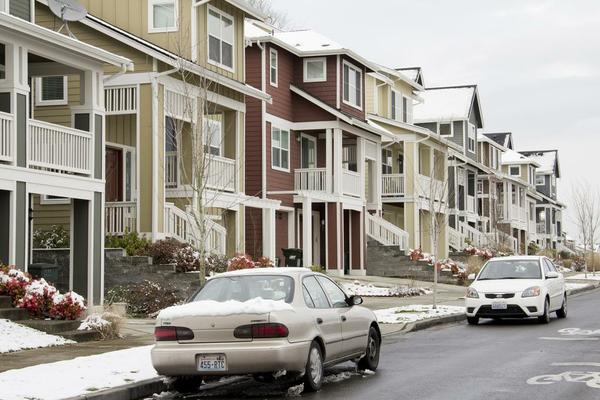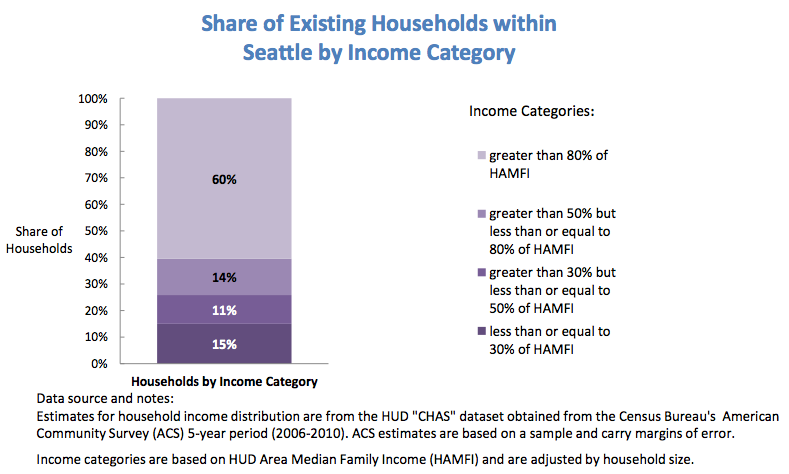Last week, Councilmember Mike O’Brien introduced a proposal to strengthen Seattle’s incentive zoning (IZ) program: a “linkage fee” rather than recommend tweaks to the existing IZ policy. If Seattle is serious about not becoming a city only for the elite and serious about carbon reduction, the linkage fee proposal is a no-brainer.
We have been long critical of the City’s IZ program. Under the current IZ policy, developers built affordable units or paid a reasonable fee to the City in exchange for permission to build to a greater density. Because developers volunteer to participate, the affordable housing requirements only kick in for a portion of a new building and applies to only a few neighborhoods that have undergone upzoning, Seattle’s program is considerably weaker than those in other cities. To date, the IZ program has only produced an estimated 714 units since 2001.
Unlike IZ, a linkage fee policy requires all new residential office or commercial development above a certain size to contribute to an affordable housing fund. The policy, as adopted in several major cities in the U.S., is premised on a link between new development and a subsequent increase in demand for low-income housing.

Why is a linkage fee vastly superior to any revision of the City’s IZ policy? Below are some top reasons:
- More Affordable Housing: a linkage fee allows the City to ensure production of far more units on a faster timeline than IZ.
- Fair to Developers: linkage fee is fair to developers because it distributes the responsibility of contributing towards affordable housing evenly and removes uncertainty about costs of projects.
- Fair to Individual Taxpayers: linkage fee is fair to taxpayers who already generously tax themselves for the housing levy and are investing billions in new infrastructure that benefits developers. Seattle taxpayers have paid their fair share since 1981. Through the Housing Levy, they have paid for 58% of all affordable housing stock to date. Private developers, through the incentive zoning program, have contributed 11%. Also, renters will not absorb the cost of these new fees because Econ 101 dictates that developers would charge more now if they could.
- Encourages Urban Sustainability: linkage fee increases overall urban sustainability by making the most of public transit investment and is not contingent on density.
So, why do we need to pass this fee now? There are many reasons developers should pay their fair share of affordable housing, the most important of which is absolute necessity. Growth is happening now. People are being displaced now, and 40% of Seattle will not be able to live here if we do not create and preserve affordability now. We need more money to build and preserve more housing now, and into the future.
We have written about the housing crisis in Seattle. Affordable housing is not available for low income people and families. It is well-documented that low-income people and families mainly consist of communities of color, immigrants, refugees and single mothers. Demographic changes in Seattle and South King County indicate that people of color have been displaced from Seattle as rents have risen over the past ten years. Rents have increased even more dramatically in the past year, and Seattle is currently the fastest growing city in the country. In order for Seattle to walk a path of justice, we need more affordable housing now.
A linkage fee is necessary to prevent displacement, is good for the environment, and good for Seattle. It is only fair that developers, who profit from our infrastructure investments, pay their share for affordable housing. Stand with Puget Sound Sage and the Growing Together Coalition and urge City Council to pass a linkage fee in October!

